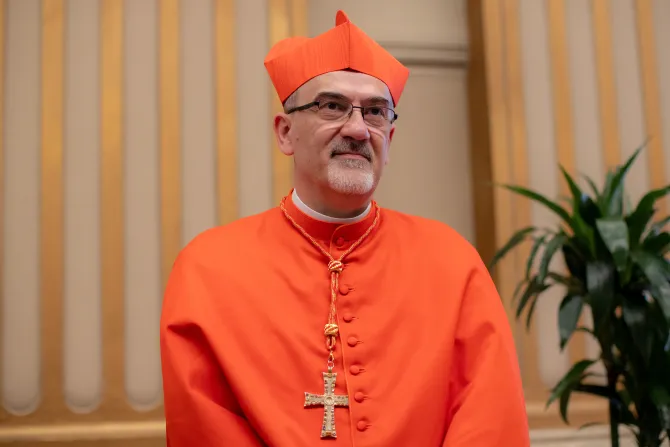Cardinal Pierbattista Pizzaballa, OFM, patriarch of Jerusalem. | Credit: Daniel Ibáñez
The Latin Catholic patriarch of Jerusalem has offered to be exchanged for the children being held hostage in the Gaza Strip by Hamas.
Speaking to journalists via video conference yesterday, Cardinal Pierbattista Pizzaballa was asked if he would be willing to offer himself in exchange for freeing the children hostages who were taken in Hamas’ attack on Israel last week. The cardinal responded that he is willing to do anything to “bring those children home.”
“Am I ready for an exchange? Anything if that can lead to freedom and bring those children home, no problem. There is an absolute availability on my part,” the cardinal said.
Israel Defense Forces announced that 199 Israeli hostages, including children, are being held by Hamas and that the military is trying to understand where they are being held in Gaza. Hamas terrorists had threatened last week to kill one hostage every time that Israel’s military bombs civilian targets in Gaza.
The cardinal underlined that it is necessary “to find a way to get the hostages back.”
“We are willing to help, even me personally,” he added.
Pizzaballa, who serves as the head of Latin Catholics living in Israel, the Palestinian territories, Jordan, and Cyprus, noted that he had not had any direct communication with Hamas since the surprise attack on Israel on Oct. 7.
The Vatican is willing to help mediate a peace agreement, according to Vatican Secretary of State Cardinal Pietro Parolin, who said in an interview Friday that the Vatican’s chief concern amid the conflict is “the release of Israeli hostages and the protection of innocent lives in Gaza.”
“I do not know how much room for dialogue there can be between Israel and the Hamas militia,” Parolin said. “But if there is — and we hope there is — it should be pursued immediately and without delay.”
Pizzaballa has called for a day of prayer and fasting for peace and reconciliation in the Holy Land on Tuesday, Oct. 17, urging Catholics to organize times of prayer with Eucharistic adoration and recitation of the rosary “to deliver to God the Father our thirst for peace, justice, and reconciliation.”
“In this time of sorrow and dismay, we do not want to remain helpless. We cannot let death and its sting (1 Cor 15:55) be the only word we hear,” he said.
“That is why we feel the need to pray, to turn our hearts to God the Father. Only in this way can we draw the strength and serenity needed to endure these hard times, by turning to him, in prayer and intercession, to implore and cry out to God amidst this anguish.”
Source: CNA

